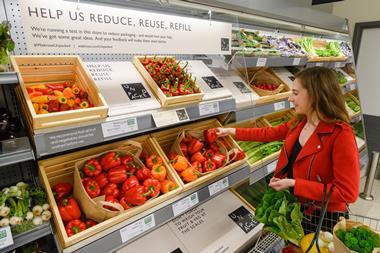With consumer caution rising, the winners of 2019 will be those who transform to take share from their competitors.

The run-up to Christmas 2018 saw a flurry of dire retail predictions in the media. It was going to be the worst festive period on record.
Despite the sensationalism, though, it wasn’t the worst Christmas on record.
Overall, golden-quarter performance was similar to previous years. Shoppers were cautiously festive as real earnings grew. Black Friday popularity held up.
Online grew too, although sales in this channel are slowing generally as it matures. And the high street is not dead. Shoppers estimated that 50% of their spending came from there over the Christmas period.
Some retailers had a great Christmas, but on the downside, some didn’t. Footfall decline accelerated, retailers who were already struggling continued to do so and, overall, shoppers estimated that they spent less.
Taking this and the global economic outlook into account, our predictions for 2019 are for relatively flat economic growth – Brexit outcome depending.
We expect to see consumer spending caution increasing, borrowing fall and spending cutbacks across the board, with the exception of grocery, where shoppers expect to spend more as costs rise.
There’s no doubt that trading will continue to be tough, but there are still some opportunities to win. Whatever the Brexit outcome, it’s clear that the UK retail market isn’t going to grow very much in the foreseeable future.
“The route to growth lies in taking share from other players”
So the route to growth lies in taking share from other players, transforming your organisation to better meet your shoppers’ rising expectations of you – and doing this better than your competitors.
To win with cautious consumers:
1. Invest in technology
Use artificial intelligence (AI) and data analytics to aid decision making and improve customer experience.
There has been less investment in AI in the past year than expected. But the fact is, it is an essential and valuable tool, particularly in supply chain. So be brave. Work out which AI initiatives you need to stay in the game. Trial them. Apply them. And drive share.
2. Be ruthlessly efficient across your operating model
Using digital technologies to transform your supply chain, save money and benefit customer experience is not news. What is new is that improvements in the application of technologies across our daily lives have made us all much more demanding.
Implementing a digital supply chain is a major undertaking and can cost up to £20m with a two-year implementation. But the payback can be seen quickly.
3. Take a fresh look at your corporate structure
Use M&A, divestments or partnerships to improve corporate health and expand your touchpoints with customers.
Beware – this comes with a health warning. Our PwC research has uncovered just how difficult it is to drive shareholder value via mergers, acquisitions or divestments in the retail, consumer and leisure sectors.
There are, however, some key learnings:
- Start integration planning earlier
- Improve integration resources
- Put value creation at the heart of the deal.
These are challenging but exciting times in retailing, and there’s enormous value up for grabs. Now is the time to transform to seize it. In the era of the cautious consumer, the brave will win.
For more insights and what they mean for you, please download our 2019 Retail Outlook report.

Lisa Hooker is leader of industry for consumer markets at PwC UK
Lisa Hooker leads PwC’s retail and consumer division, with a specialism in mergers and acquisitions. Her passion for understanding the challenges of diverse business models has enabled her to work across a broad variety of the UK’s biggest brands in multiple geographies.




























